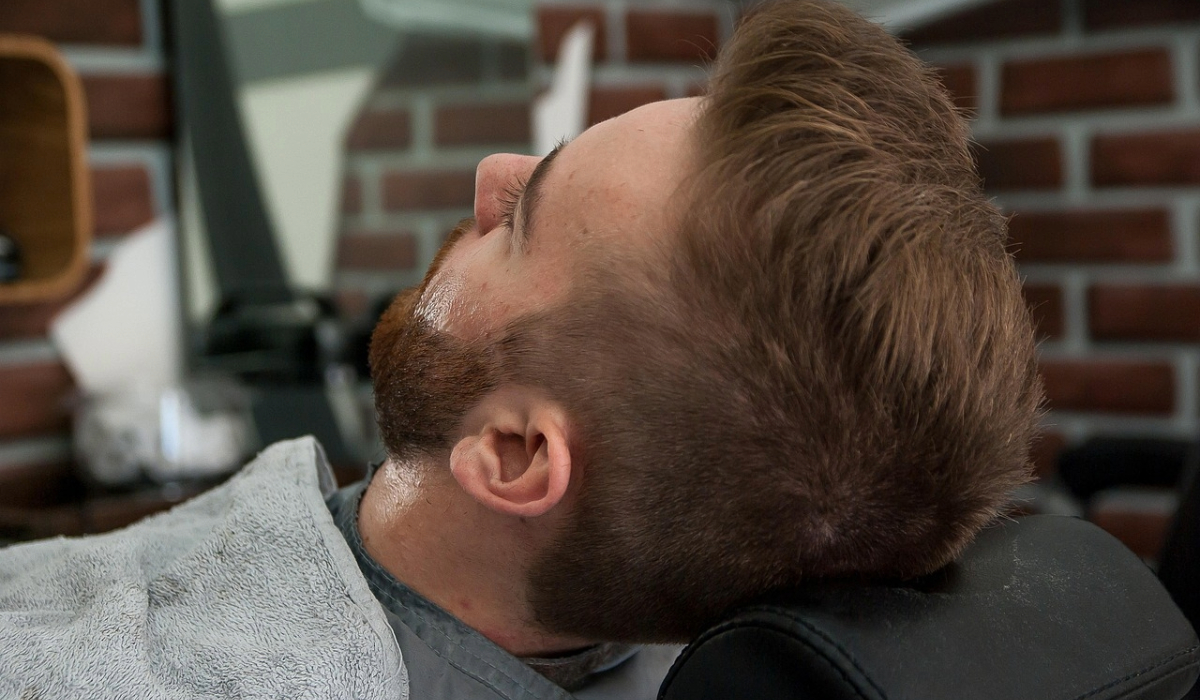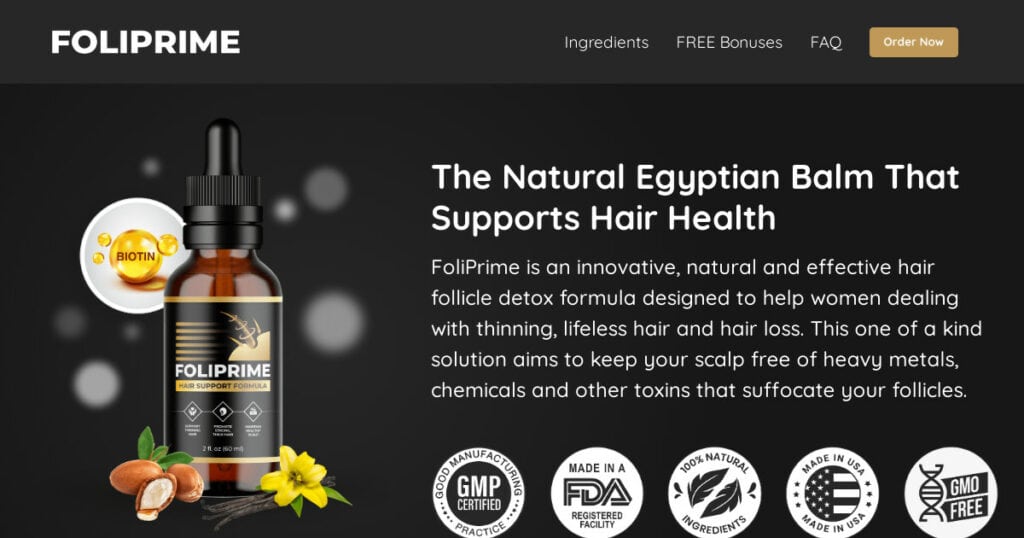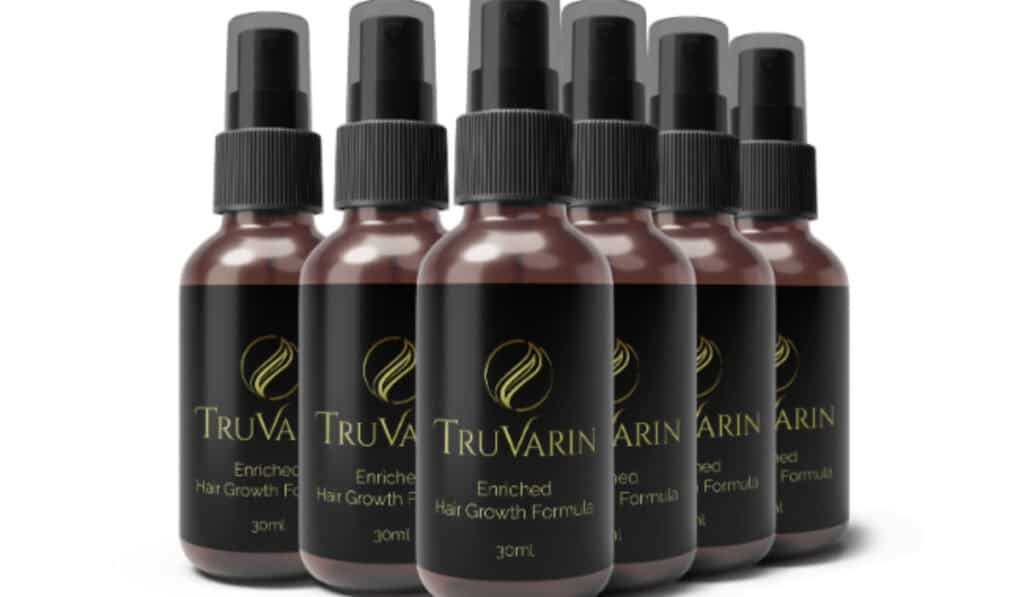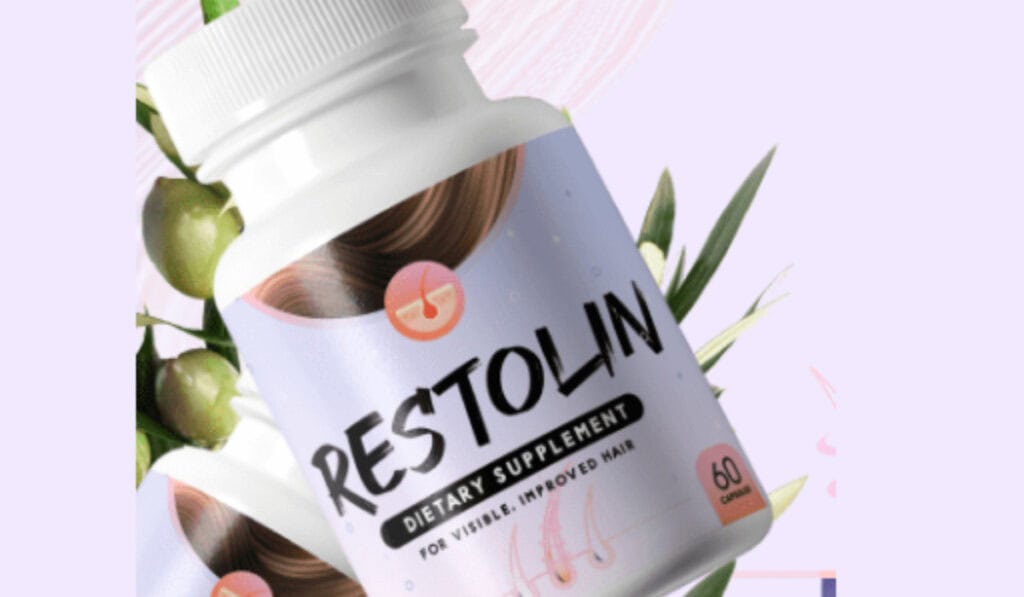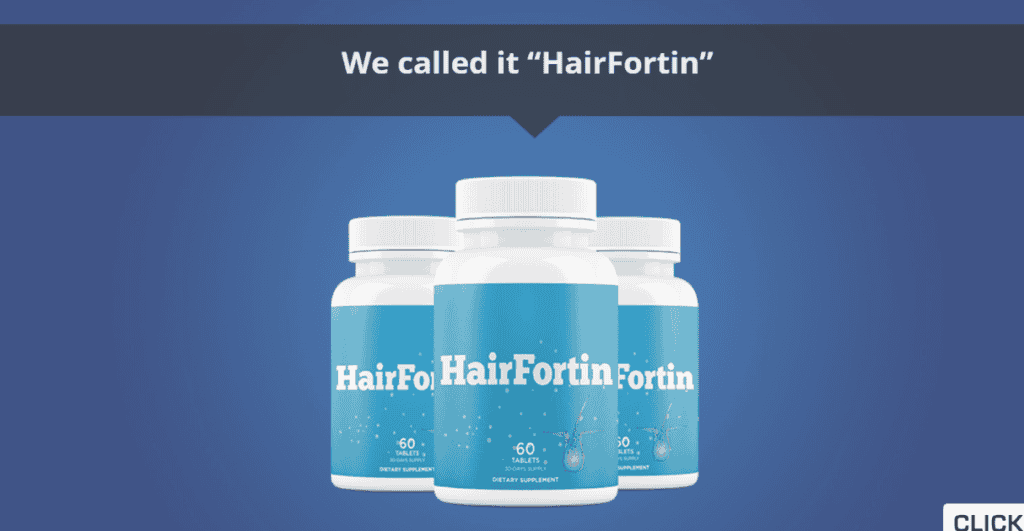Comprehensive Guide for Effective Hair Loss Prevention
Hair loss can be a distressing issue, affecting both men and women globally. Among the numerous options available, natural DHT blockers have emerged as a highly effective solution for preventing hair loss and promoting healthy hair growth. Unlike options like finasteride, which are prescription-based, natural DHT blockers can be found in everyday foods, topical treatments such as dht-blocking shampoo, and even in supplement form like green tea supplements. These natural solutions offer not only the benefit of blocking DHT but also bring a host of other health benefits.
For those exploring the path of natural prevention, it’s essential to understand the ingredient lists of products and the nutritional content of foods. From the nutrient-rich avocados to the powerful antioxidants found in berries, natural DHT blockers are versatile and can cater to various preferences and dietary requirements. Whether you’re considering a dht blocker for women specifically or searching for a solution that benefits both men and women, embracing natural blockers can be a significant step towards achieving healthier, fuller hair.
Understanding the Role of DHT in Hair Loss
DHT, or dihydrotestosterone, is a male sex hormone that plays a central role in male development. However, it also has a less favorable effect when it comes to hair health. High levels of DHT are linked to hair loss, as this hormone can shrink hair follicles, eventually leading to hair thinning and loss. Understanding the impact of DHT is crucial for anyone looking to prevent hair loss and promote hair growth effectively.
What is DHT and Its Impact on Hair Health?
DHT is a hormone derived from testosterone and plays a central role in male development, including the growth of facial hair and deepening of the voice. However, its impact on hair health can be negative. High levels of DHT can lead to the miniaturization of hair follicles, weakening hair at the root, and eventually causing it to fall out. This makes controlling DHT levels a critical aspect of maintaining hair health and preventing hair loss.
The Science Behind How DHT Causes Hair Loss
The biology of hair loss involves DHT binding to receptors in hair follicles, particularly those on the scalp. This binding process leads to the shrinking of hair follicles, which weakens the hair and disrupts the growth cycle. Over time, the affected follicles stop producing hair altogether. By understanding this mechanism, we can see why substances that block DHT production or promote hair growth are crucial in combating hair loss.
Top Natural DHT Blockers for Healthy Hair Growth
Natural DHT blockers offer a dual advantage; they help in blocking DHT and also promote hair growth by improving scalp health and the growth cycle. Foods rich in vitamins like vitamin E, minerals, and fatty acids are known to block DHT production and have antioxidant properties that reduce oxidative stress. Similarly, using a DHT blocker shampoo can decrease DHT production on the scalp, promoting hair growth. Consulting with a healthcare provider can help you understand how to integrate these natural blockers effectively into your routine for optimal hair health.
Essential Foods That Help Block DHT
1. Green Tea: A Powerful Antioxidant
Green tea is not just a soothing beverage; it’s also a powerful antioxidant that improves blood flow to the scalp and promotes hair growth. Its rich content of antioxidants helps in reducing the effects of DHT by blocking its production. Regularly consuming green tea or taking green tea supplements can be an effective way to harness its benefits for hair health.
2. Pumpkin Seeds and Pumpkin Seed Oil: Rich in Zinc
Pumpkin seeds and their oil are rich in zinc, a vital mineral for hair health. Zinc not only helps in blocking DHT but also promotes hair regeneration and scalp health. Incorporating pumpkin seeds into your diet, either as a snack or appetizer, can provide your body with the necessary nutrients to combat hair loss effectively.
3. Berries: Loaded With Vitamins and Minerals
Berries are packed with vitamins and minerals that support hair health, offering a delicious way to fight back against hair loss. Their high antioxidant content protects hair follicles from damage by DHT and oxidative stress, without the negative side effects often associated with other treatments. Adding a variety of berries to your diet can boost your hair’s health and vitality.
4. Avocado: A Nutrient-Rich DHT Blocker
Avocados are not only delicious but also full of nutrients that act as natural DHT blockers. They are rich in fatty acids, vitamin E, and antioxidants that improve scalp health and promote hair growth. Eating avocados regularly can help nourish your hair from the inside out, contributing to stronger, healthier hair.
5. Nuts and Seeds: Variety Matters
Nuts and seeds are excellent sources of vitamins and minerals essential for hair health. They contain fatty acids and plant chemicals that decrease DHT production, promote hair growth, and improve blood circulation to the scalp. Incorporating a variety of nuts and seeds into your diet can offer a tasty and effective way to combat hair loss.
6. Soybeans and Edamame: Isoflavones to the Rescue
Soybeans and edamame are rich in isoflavones, which help in reducing DHT levels and promote hair growth. These plant-based foods are not only nutritious but can also be enjoyed as a snack or appetizer, making them a convenient addition to your diet for improving hair health.
Beneficial Natural Oils for Topical DHT Blocking
Topical treatments with natural DHT blockers can be an effective way to combat hair loss directly at the source. Applying oils that inhibit DHT production or promote hair growth directly to the scalp can enhance hair health and growth.
1. Rosemary Oil: Enhancing Circulation
Rosemary oil is renowned for its ability to enhance circulation to the scalp, promoting hair growth and health. Its application not only invigorates the scalp but also helps in blocking DHT, making it a valuable addition to your hair care regimen.
2. Coconut Oil: Versatile and Effective
Coconut oil is celebrated for its versatility and effectiveness in promoting hair growth and scalp health. It contains fatty acids that block DHT production, improve circulation to the scalp, and provide the nutrients necessary for healthy hair growth. Regular use of coconut oil can help reduce the effects of DHT and promote stronger, healthier hair.
Lifestyle Changes and Their Impact on DHT Levels
Making lifestyle changes can have a big effect on the levels of DHT in your body. Eating natural DHT blockers like pumpkin seeds, using rosemary oil on your scalp, and adding palmetto extract to your diet can help. These changes can reduce DHT and might help prevent hair loss for both men and women. It’s also important to keep your body in balance by avoiding hormonal imbalances, as they can increase DHT levels. By taking these steps, you might see a big difference in your hair health.
The Pros and Cons of Different DHT Blocker Types
When you’re thinking about how to tackle hair loss, you’ll find there are many options. You can choose between natural supplements, topical treatments like topical finasteride, and prescription medication. Each choice has its good and bad sides. Natural supplements are gentle but may take longer to show results. Topical treatments work directly on your scalp but can be messy. Prescription medications are powerful but might come with side effects. It’s all about finding what works best for you.
Prescription vs. Natural DHT Blockers
Choosing between prescription and natural DHT blockers is a big decision. Prescription options often offer quick results, but they might have side effects. On the other hand, natural DHT blockers, including topical treatments, are gentler. They might take longer to work, but they usually have fewer side effects. It’s important to think about what’s most important to you when making your choice. Do you want fast results, or do you prefer a gentler approach? The answer will help guide your decision.
Topical DHT Blockers: What You Need to Know
Topical treatments are a popular way to fight hair loss. They are applied directly to your scalp and aim to reduce DHT levels right at the source. This means they can be quite effective. However, it’s important to use them correctly. Make sure to follow the instructions carefully. Also, remember that while they can help, they might not work for everyone. But for many people, they are a good choice for fighting hair loss without taking pills.
Maximizing the Effectiveness of DHT Blockers
To really get the most out of DHT blockers, it’s not just about what you use, but how you use them. Incorporating them into your daily routine consistently is key. If you’re using a shampoo, make sure to use it regularly. If you’re taking supplements, don’t skip days. Consistency helps your body get the full benefits and can lead to better results over time. Also, be patient. These things can take time to work, but with consistent use, you’re giving yourself the best chance at success.
Incorporating DHT Blockers into Your Daily Routine
Adding DHT blockers to your daily life can be easy. If you’re using topical treatments, you can apply them to your scalp as part of your morning or nighttime routine. If you’re eating foods that block DHT, like pumpkin seeds or avocados, try adding them to your meals every day. Making these small changes a regular part of your day can make a big difference in the long run. It’s all about building good habits that support your hair health.
Adjusting Diet and Lifestyle for Optimal Results
To really tackle hair loss, think about your whole lifestyle. Eating well, staying active, and getting enough sleep all help your body stay in balance. This can reduce DHT and support healthy hair growth. Try to eat a balanced diet with plenty of fruits, vegetables, and whole grains. Also, try to reduce stress. Too much stress can throw your body off balance and make hair loss worse. Small changes in your daily life can add up to big improvements in your hair health.
Potential Side Effects and Considerations
While DHT blockers can be a big help in fighting hair loss, it’s important to know that they can have side effects. For some people, these might be mild, like a little scalp irritation from topical treatments. But others might experience more serious side effects from prescription medications. It’s always a good idea to start with a small amount to see how your body reacts. And remember, if you’re ever unsure or if side effects feel serious, it’s best to talk to a doctor.
Understanding Possible Reactions
Everyone’s body is different, so reactions to DHT blockers can vary. Some people might not have any side effects at all, while others might notice things like dryness or itching on their scalp from topical treatments. If you’re taking supplements or medications, watch out for any changes in how you feel. If something doesn’t feel right, don’t ignore it. It’s important to listen to your body and take any concerns seriously. Your health should always come first.
When to Consult a Professional
If you’re thinking about using DHT blockers but aren’t sure where to start, talking to a professional can be a great first step. This could be a doctor or a specialist in hair loss. They can help you understand your options and what might work best for you. Also, if you start using DHT blockers and have side effects or don’t see results, a professional can offer advice and help you adjust your approach. Remember, you don’t have to figure this out on your own.
Success Stories and Frequently Asked Questions
Real-Life Outcomes from Using Natural DHT Blockers
Frequently Asked Questions
Many people have questions about using natural DHT blockers. They wonder if these treatments work for everyone, how long it takes to see results, and if it’s okay to use more than one at a time. It’s also common to ask about foods that might increase DHT levels and should be avoided. These are all important questions, and getting answers can help you make the best choices for your hair health.
Do Natural DHT Blockers Work for Everyone?
While natural DHT blockers can be very helpful, they don’t work the same for everyone. Everyone’s body is different, and factors like genetics, overall health, and how severe the hair loss is can all play a role. For some people, these natural solutions can make a big difference, while others might need to try different approaches. The key is to find what works best for you and your body.
How Long Before I See Results from Natural DHT Blockers?
Seeing results from natural DHT blockers can take time. It might be a few months before you notice a difference in your hair. This is because hair grows slowly, and it takes time for your body to adjust and for the benefits to show. It’s important to be patient and to keep using the treatments consistently. Even if it takes a while, sticking with it is the best way to get results.
Can I Use Multiple DHT Blockers Simultaneously?
Yes, you can use multiple DHT blockers at the same time. Many people find that combining different types of DHT blockers, like eating foods rich in nutrients that block DHT and using topical oils, works better for them. It’s like having a team where each player has a special skill. Together, they work better. But remember, it’s important to start slowly and watch how your body reacts. If you’re not sure what’s best for you, booking a free consultation today with a professional can be a great first step.
Are There Any Foods to Avoid That May Increase DHT?
While some foods can help block DHT, others might increase its levels. Foods that are high in saturated fats and refined sugars are not friends with your hair. They can raise your body’s DHT production. Think of foods like red meat, dairy, and sugary treats as examples. It’s not about cutting these out completely, but eating them less often. Your hair will thank you for making better food choices.
Delving Deeper into DHT and Hair Loss Prevention
Understanding DHT and how to prevent hair loss goes beyond just knowing what to eat or what oils to rub on your scalp. It’s about a deeper knowledge of how your body works and how different factors like genetics, diet, and even stress levels play a role. Getting to know these can help you make smarter choices for your hair’s health. Sometimes, the journey to healthier hair requires a holistic approach, considering everything from what you eat to how you manage stress.
Advanced Topics in Hair Loss and DHT
Exploring advanced topics in hair loss and DHT can unlock new insights into managing hair health.
Does DHT Affect Transplanted Hair?
Transplanted hair is usually resistant to DHT, which is good news. This resistance is because the hair follicles used for transplants often come from areas of your head that aren’t affected by DHT as much. So, once these hairs are moved, they keep their tough attitude towards DHT. That’s why hair transplants can be a lasting solution for hair loss.
The Role of Genetics in DHT Sensitivity
Your genes play a big role in how sensitive your hair follicles are to DHT. If your family has a history of hair loss, you might have inherited genes that make your hair more likely to fall out. It’s like getting a family recipe, but instead of cookies, it’s how your hair responds to DHT. Understanding your family history can help you and your doctor come up with the best plan to keep your hair healthy.
The Journey Towards Healthier Hair Begins
Starting on the path to healthier hair with natural DHT blockers is a positive step. Whether you’re changing your diet, using new oils, or making lifestyle changes, each small step contributes to your goal. Remember, the journey is ongoing, and being patient and consistent with your efforts is key. Healthy hair doesn’t happen overnight, but with the right approach, you can make a big difference.
Taking the First Step with Natural DHT Blockers
Taking the first step towards using natural DHT blockers can feel exciting. It’s like you’re a detective gathering clues on how to keep your hair strong and healthy. Start by adding DHT-blocking foods to your diet and consider using topical oils known for their benefits. These small changes can be powerful. Keep in mind, it’s about finding what works best for you, so feel free to experiment a little.
Maintaining Commitment and Tracking Progress
Staying committed to using natural DHT blockers and tracking your progress is crucial. Think of it like growing a plant. You need to water it, give it sunlight, and be patient. Sometimes, you might not notice changes right away, but that doesn’t mean it’s not working. Keep a journal of what you’re doing and any changes you see. This can help you understand what’s working and keep you motivated on your journey to healthier hair.
Conclusion: Embracing a Holistic Approach to Combat Hair Loss
Combating hair loss requires more than just a single step; it’s about creating a comprehensive treatment plan that addresses the root causes. Understanding that DHT is a hormone influenced by the enzyme called 5-alpha reductase helps in targeting treatments effectively. By managing the levels of DHT through a combination of diet, natural DHT blockers, and lifestyle changes, you can create a solid foundation for healthier hair growth.
Further, exploring treatments such as laser therapy, especially in the treatment of female hair loss, adds another layer to your strategy. Remember, the journey to healthier hair is not instantaneous. It demands patience, consistency, and a willingness to adapt your approach as you learn what works best for your body. By embracing this holistic approach, you’re not just fighting hair loss; you’re nurturing your overall well-being.

